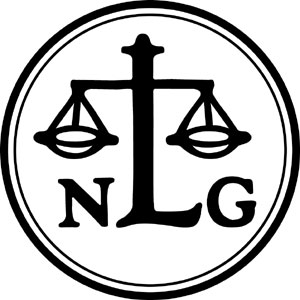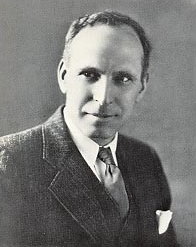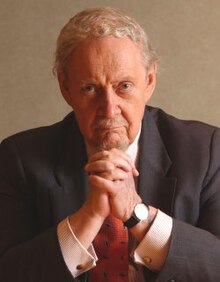
Nicola Sacco and Bartolomeo Vanzetti were Italian immigrants and anarchists who were controversially convicted of murdering Alessandro Berardelli and Frederick Parmenter, a guard and a paymaster, during the April 15, 1920, armed robbery of the Slater and Morrill Shoe Company in Braintree, Massachusetts, United States. Seven years later, they were executed in the electric chair at Charlestown State Prison.

The National Lawyers Guild (NLG) is a progressive public interest association of lawyers, law students, paralegals, jailhouse lawyers, law collective members, and other activist legal workers, in the United States. The group was founded in 1937 as an alternative to the American Bar Association (ABA) in protest of that organization's exclusionary membership practices and conservative political orientation. They were the first predominantly white US bar association to allow the admission of minorities to their ranks. The group sought to bring more lawyers closer to the labor movement and progressive political activities, to support and encourage lawyers otherwise "isolated and discouraged," and to help create a "united front" against Fascism.

Roger Nash Baldwin was one of the founders of the American Civil Liberties Union (ACLU). He served as executive director of the ACLU until 1950.

Arthur Garfield Hays was an American lawyer and champion of civil liberties issues, best known as a co-founder and general counsel of the American Civil Liberties Union and for participating in notable cases including the Sacco and Vanzetti trial. He was a member of the Committee of 48 and a contributor to The New Republic. In 1937, he headed an independent investigation of an incident in which 19 people were killed and more than 200 wounded in Ponce, Puerto Rico, when police fired at them. His commission concluded the police had behaved as a mob and committed a massacre.

Elizabeth Gurley Flynn was an American labor leader, activist, and feminist who played a leading role in the Industrial Workers of the World (IWW). Flynn was a founding member of the American Civil Liberties Union and a visible proponent of women's rights, birth control, and women's suffrage. She joined the Communist Party USA in 1936 and late in life, in 1961, became its chairwoman. She died during a visit to the Soviet Union, where she was accorded a state funeral with processions in Red Square attended by over 25,000 people.
Webster Thayer was a judge of the Superior Court of Massachusetts, best known as the trial judge in the Sacco and Vanzetti case.
Carol Weiss King was a well-known immigration lawyer, renowned for her advocacy in defending the civil rights of immigrants, key founder of the International Juridical Association, and a founding member of the National Lawyers Guild in the United States. Her left-leaning career spanned from the Palmer Raids to the McCarthy Era.
Leonard B. Boudin was an American civil liberties attorney and left-wing activist who represented Daniel Ellsberg of Pentagon Papers fame and Dr. Benjamin Spock, the author of Baby and Child Care, who advocated draft resistance during the Vietnam War. Other opponents of the Vietnam War whom he represented were Julian Bond, William Sloane Coffin, and Philip Berrigan.
Victor Rabinowitz was a 20th-century American lawyer known for representing high-profile dissidents and causes.

Harold I. Cammer was an American lawyer who co-founded the National Lawyers Guild. He was known for his participation in labor law, civil rights, peace and justice issues, and freedom of speech cases; in particular, defending those accused of communist leanings.
The International Labor Defense (ILD) (1925–1947) was a legal advocacy organization established in 1925 in the United States as the American section of the Comintern's International Red Aid network. The ILD defended Sacco and Vanzetti, was active in the anti-lynching, movements for civil rights, and prominently participated in the defense and legal appeals in the cause célèbre of the Scottsboro Boys in the early 1930s. Its work contributed to the appeal of the Communist Party among African Americans in the South. In addition to fundraising for defense and assisting in defense strategies, from January 1926 it published Labor Defender, a monthly illustrated magazine that achieved wide circulation. In 1946 the ILD was merged with the National Federation for Constitutional Liberties to form the Civil Rights Congress, which served as the new legal defense organization of the Communist Party USA. It intended to expand its appeal, especially to African Americans in the South. In several prominent cases in which blacks had been sentenced to death in the South, the CRC campaigned on behalf of black defendants. It had some conflict with former allies, such as the NAACP, and became increasingly isolated. Because of federal government pressure against organizations it considered subversive, such as the CRC, it became less useful in representing defendants in criminal justice cases. The CRC was dissolved in 1956. At the same time, in this period, black leaders were expanding the activities and reach of the Civil Rights Movement. In 1954, in a case managed by the NAACP, the US Supreme Court ruled in Brown v. Board of Education that segregation of public schools was unconstitutional.
The International Juridical Association was an association of socially minded American lawyers, established by Carol Weiss King and considered by the U.S. federal government as "another early (communist) front for lawyers. The principal concern about the IJA was that it "constituted itself an agent of a foreign principal hostile to the interests of the United States."
Abraham Unger (1899–1975) was a 20th-Century American lawyer, co-founder and officer of the National Lawyers Guild, and partner in the law firm of Freedman and Unger. Defendants included: Communist Party (CPUSA), state-level Party organizations, individual Communist and Progressive activists, radical and/or Communist-associated labor unions and their leaders and activists, Puerto Rican nationalists, and fellow lawyers charged with contempt and other crimes in connection with their defense of radicals. Colleague Victor Rabinowitz noted in his memoir that Unger was "a lawyer who frequently represented the Communist party."
Allan Robert Rosenberg was a 20th-century American labor lawyer and civil servant, accused as a Soviet spy by Elizabeth Bentley and listed under Party name "Roy, code names "Roza" in the VENONA Papers and code name "Sid" in the Vasilliev Papers; he also defended Dr. Benjamin Spock.
Nathan Greene, also known as "Nuddy" Greene, was an American lawyer and legal scholar. He cofounded the International Juridical Association and cowrote The Labor Injunction with his professor and future Supreme Court Justice Felix Frankfurter. The book criticized the U.S. Supreme Court for creating "government by injunction".
Joseph R. Brodsky, often known as Joseph Brodsky and Joe Brodsky, was an early 20th-century American civil rights lawyer, political activist, general counsel of the International Labor Defense (ILD), co-founder of the International Juridical Association (IJA), member of ILD defense team for members of the Scottsboro Boys Case of the 1930s, and general counsel for the International Workers Order (IWO).
Walter Pollak (1887–1940) was a 20th-century American civil liberties lawyer, who established important precedents while working with other leading radical lawyers in the 1920s and 1930s. His best known cases involved the defense before the Supreme Court of Communist Benjamin Gitlow and the Scottsboro Boys.
Arthur Dehon Hill was an American lawyer who served as District Attorney of Suffolk County, Massachusetts, and was a defense counsel for Sacco and Vanzetti.
Herbert B. Ehrmann (HBE) was an American lawyer and activist. He gained fame also for authoring books on the famous Sacco and Vanzetti case.
George B. Leonard (1872–1956) was an early 20th Century American lawyer at the firm of Leonard, Street & Deinard and a civil rights activist based in Minneapolis, Minnesota, best known for his service on the Board of Regents for his alma mater, the University of Minnesota.







